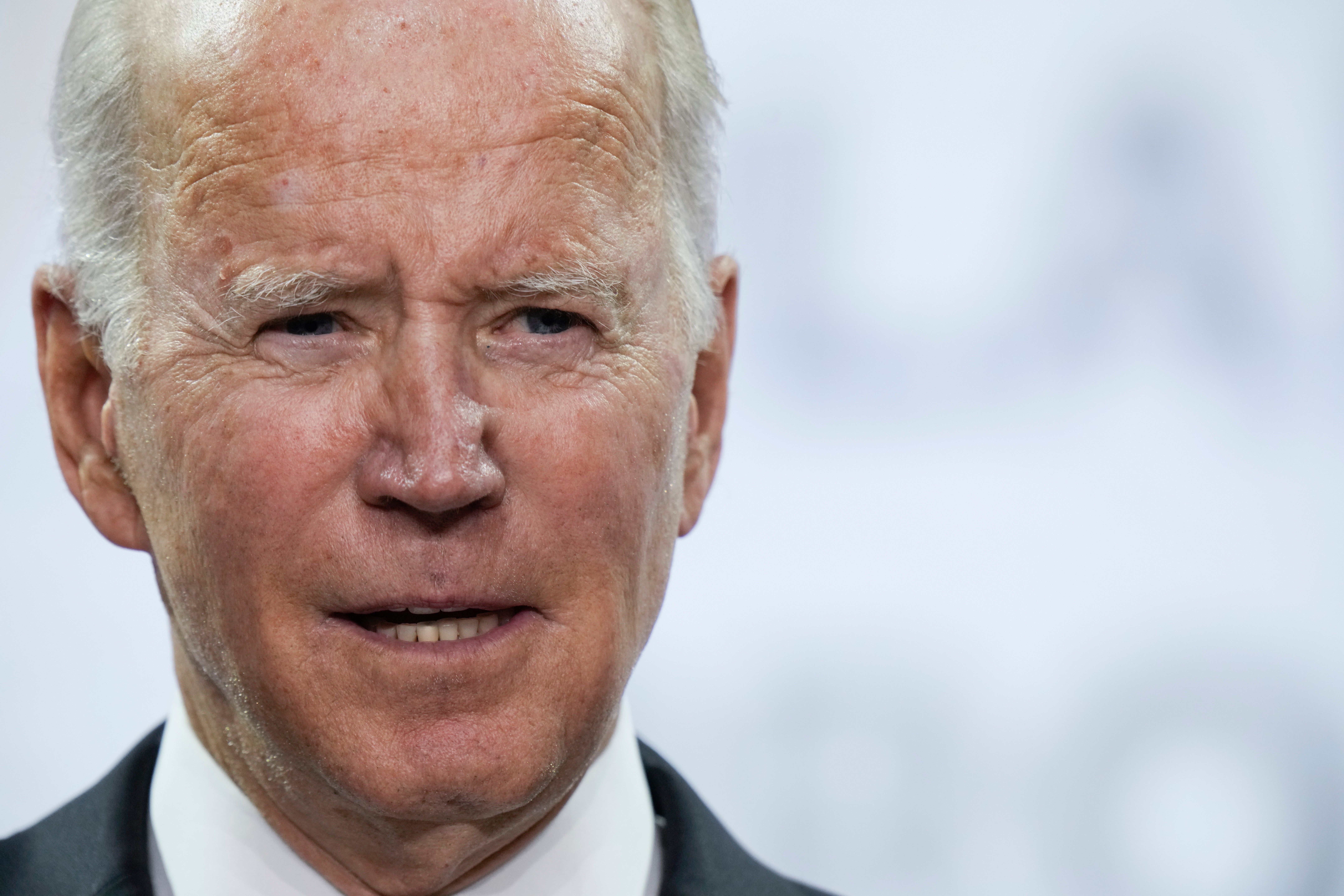US: Progress, if not breakthroughs, at climate talks
President Joe Biden is swinging the focus of his battle for fast action against global warming from the U.S. Congress to the world

President Joe Biden swings the focus of his battle for fast, concerted action against global warming from the U.S. Congress to the world on Monday, appealing to global leaders at a U.N. summit to commit to the kind of big climate measures that Biden is still working to nail down at home.
Biden planned to review a year of U.S. climate efforts in a speech to fellow heads of government and announce climate initiatives including billions of dollars in hoped-for legislation to help poorer communities abroad deal with climate damage already underway.
The summit in Glasgow Scotland, is often billed as essential to putting the landmark 2015 Paris climate accord into action.
But the Biden administration at the same time is dealing with a series of obstacles to the president's climate efforts abroad, as at home. In the runup to the summit, the administration has tried hard to temper expectations that two weeks of talks involving more than 100 world leaders will produce major breakthroughs on cutting climate-damaging emissions.
Rather than a quick fix, “Glasgow is the beginning of this decade race, if you will,” Biden's climate envoy, John Kerry told reporters Sunday.
As the summit opens, the United States is still struggling to get some of the world's biggest climate polluters — China, Russia and India — to join the U.S. and its allies in stronger pledges to burn far less coal, gas and oil and to move to cleaner energy,
Kerry on Sunday defended the outcome of a summit of the Group of 20 leading economies that ended earlier that day in Rome. The G-20 meeting was supposed to create momentum for more climate progress in Glasgow, and leaders at the Italy summit did agree on a series of measures, including formalizing a pledge to cut off international subsidies for dirty-burning, coal-fired power plants.
Biden also lauded a separate U.S.-European Union steel agreement announced Sunday as a chance to curb imports of “dirty” Chinese steel forged by coal power. It's another step toward potentially using Western markets as leverage to persuade China, the world's top climate polluter, to ease up in its enthusiasm for coal power.
But G-20 leaders offered more vague pledges than commitments of firm action, saying they would seek carbon neutrality “by or around mid-century.”
Major polluters including China and Russia had already made clear they had no immediate intention of following the U.S. and its European and Asian allies to zero out all fossil-fuel pollution by 2050. Scientists say massive, fast cuts in fossil fuel pollution are essential to having any hope of keeping global warming at or below the limits set in the Paris climate accord.
The world currently is on track for a level of warming that would melt much of the planet’s ice, raise global sea levels and greatly increase the likelihood and intensity of extreme weather, experts say.
Biden told reporters he personally found the outcome of the Rome summit “disappointing,” countering the positive assessments of his aides. And he put the blame on two rivals of the U.S.
“The disappointment relates to the fact that Russia, and ... not only Russia, but China basically didn’t show up in terms of any commitments to deal with climate changes," Biden said.
The Biden administration has succeeded, over 10 months of diplomacy leading up to the Glasgow summit, in helping win significant new climate pledges from allies. That includes persuading many foreign governments to set more ambitious targets for emissions cuts, promoting a global pledge to cut emissions of a potent climate harm, methane, and the promise from leading economies to end funding for coal energy abroad.
European leaders make clear they are happy to see Biden and the U.S. back in the climate effort after his predecessor, Donald Trump, turned his back on the Paris accord and on allies in general. European Commission President Ursula von der Leyen smiled at Biden throughout the announcement on Sunday's steel deal, calling him “dear Joe.”
Neither Russian President Vladimir Putin nor Chinese President Xi Jinping are attending the Glasgow summit, although they are sending senior officials. Their refusals, and India’s, to move substantially faster to cut their reliance on coal and petroleum threaten to frustrate hopes of reaching the target cuts set in the Paris climate accord.
China under Xi has firmed up commitments to cut emissions, but at a slower pace than the U.S. has encouraged.
Biden comes to the international climate summit with the fate of his own climate package still uncertain in Congress. Objections from one holdouts within his own Democratic Party have compelled Biden to back away from one bill that would have prodded the United States' own move away from coal and natural gas and to cleaner energy for generating electricity.
Hundreds of billions of dollars of climate measures remain in Biden's package before Congress, however.
“The largest investment in the history of the world” on climate, Biden told reporters Sunday. “And it's gonna pass.”
While an opening ceremony in Glasgow on Sunday formally kicked off the climate talks, the more anticipated launch comes Monday, when Biden and other leaders gather to lay out their countries’ efforts to curb emissions and deal with the mounting damage from climate change.
Biden will also participate in a climate event on “action and solidarity” Monday and meet on sidelines of the summit with Indonesian President Joko Widodo.
___
Miller reported from Rome.
Bookmark popover
Removed from bookmarks